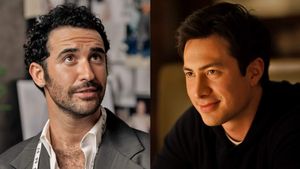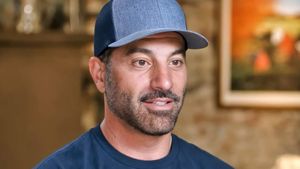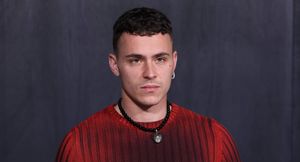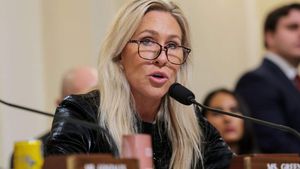This month marks a key anniversary in the LGBT rights movement. Forty years ago, voters in my home area of Miami-Dade County were herded to polling booths in record numbers for a special election specifically centered around a trailblazing ordinance prohibiting discrimination based on sexual orientation. Motivated by lies and a general misunderstanding of gay and lesbian people, residents voted to repeal the ordinance by huge margins, sparking a national conversation about LGBT nondiscrimination that continues to rage today.
Miami was one of the first cities to pass such an ordinance, in 1977, when a national conversation had hardly even begun about LGBT freedom -- a testament to our values of inclusion and fairness for all. But almost immediately, singer and evangelical activist Anita Bryant launched the hateful "Save Our Children" campaign, spreading lies about gay people and utilizing her platform to perpetuate the shameful myth that gay people were "trying to recruit our children into homosexuality." It was one of the first organized campaigns opposing the gay rights movement, and as a result, Miami's ordinance was overturned, with 70 percent of voters supporting repeal. LGBT advocates were outraged, and it led to a coordinated reaction, one of the first times since the Stonewall protest that the movement came together to fight back.
The ramifications of that ballot fight continue to this day. Now, in 2017, we're seeing similar rollbacks to existing nondiscrimination protections, particularly for transgender people. Last year, North Carolina became the first state in the country to bar transgender people from using public restrooms and facilities that correspond with their gender identity. Texas lawmakers are convening a special legislative session to consider similar legislation. And in February, President Trump's administration rescinded nonbinding federal education guidance that instructed schools on how to best support transgender students.
As a gay and transgender man, I find it disheartening to think that slightly over one generation ago, I wouldn't have had any law to protect me from being fired, thrown out of my home, or harassed and humiliated at a place of business because of who I am. When I came out as a transgender man in college, I felt vulnerable and fearful for my future. I didn't know if my conservative family would accept me. Although they had a lot of questions and did not understand what I was going through, they made clear to me that their love was unconditional and that I would always be their child no matter what. I was very fortunate.
That level of acceptance is uncommon even today, but it's becoming more so as more people meet transgender people and become more familiar with who we are. For those who do not yet understand -- and for those who oppose our very existence -- we need laws in place to protect us from discrimination. Opponents of LGBT equality continue to use harmful rhetoric about who LGBT people are, and their framing and focus has shifted to targeting transgender people. Because the transgender population is so small, few people have the opportunity to interact with us one on one, and so it can be difficult to separate truth from fiction. The truth is, transgender people have the same ambitions, goals, and dreams as anyone else. We want to raise families, take care of our loved ones, and create the best lives we can for ourselves. We want to be treated fairly and equally under the law and in our communities.
Miami-Dade should celebrate how far we've come since the days of Anita Bryant's antigay campaigning. Since then, the City Council has passed a comprehensive ordinance that explicitly protects LGBT people from discrimination in any area of life. Miami's economy flourishes because of the tourism generated by our inclusive culture and our reputation as an LGBT-friendly destination.
But the work's not over. In other parts of Florida, LGBT residents lack these protections and are vulnerable to discrimination in housing, employment, and public places. Florida legislators should update state nondiscrimination law to include LGBT people. We must continue the work, strengthen support for LGBT people, and leave no gaps in our law until we achieve equality for all.
 RODRIGO HENG-LEHTINEN is the director of public education at Freedom for All Americans, the national campaign to secure comprehensive nondiscrimination protections for LGBT people. As the son of Congresswoman Ileana Ros-Lehtinen, he is the first openly transgender child of a member of Congress. He lives in Miami.
RODRIGO HENG-LEHTINEN is the director of public education at Freedom for All Americans, the national campaign to secure comprehensive nondiscrimination protections for LGBT people. As the son of Congresswoman Ileana Ros-Lehtinen, he is the first openly transgender child of a member of Congress. He lives in Miami.


 RODRIGO HENG-LEHTINEN is the director of public education at
RODRIGO HENG-LEHTINEN is the director of public education at 

































































Charlie Kirk DID say stoning gay people was the 'perfect law' — and these other heinous quotes